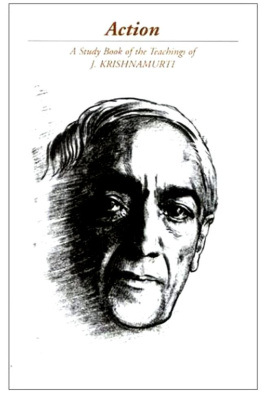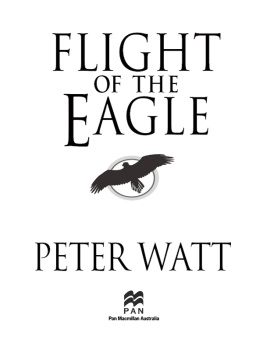Krishnamurti - The Flight of the Eagle
Here you can read online Krishnamurti - The Flight of the Eagle full text of the book (entire story) in english for free. Download pdf and epub, get meaning, cover and reviews about this ebook. publisher: Morning Light Press, genre: Religion. Description of the work, (preface) as well as reviews are available. Best literature library LitArk.com created for fans of good reading and offers a wide selection of genres:
Romance novel
Science fiction
Adventure
Detective
Science
History
Home and family
Prose
Art
Politics
Computer
Non-fiction
Religion
Business
Children
Humor
Choose a favorite category and find really read worthwhile books. Enjoy immersion in the world of imagination, feel the emotions of the characters or learn something new for yourself, make an fascinating discovery.

- Book:The Flight of the Eagle
- Author:
- Publisher:Morning Light Press
- Genre:
- Rating:5 / 5
- Favourites:Add to favourites
- Your mark:
- 100
- 1
- 2
- 3
- 4
- 5
The Flight of the Eagle: summary, description and annotation
We offer to read an annotation, description, summary or preface (depends on what the author of the book "The Flight of the Eagle" wrote himself). If you haven't found the necessary information about the book — write in the comments, we will try to find it.
The Flight of the Eagle — read online for free the complete book (whole text) full work
Below is the text of the book, divided by pages. System saving the place of the last page read, allows you to conveniently read the book "The Flight of the Eagle" online for free, without having to search again every time where you left off. Put a bookmark, and you can go to the page where you finished reading at any time.
Font size:
Interval:
Bookmark:
The Flight of the Eagle
Copyright 1971 by Krishnamurti Foundation Trust Ltd.
THE
FLIGHT
OF THE
EAGLE
Authentic reports of talks and discussions in London,
Amsterdam, Paris, and Saanen, Switzerland.
J. Krishnamurti
CONTENTS
Thought, pleasure and pain.
Division. The conscious and the unconscious. Dying to the known.
The meaning of search. Problems involved in practice and control. The quality of silence.
Energy. Its wastage in conflict.
Fear, how it arises. Time and thought. Attention: to keep awake.
The motiveless passion to understand.
Resistance. Energy and attention.
To penetrate into reality? Tradition of meditation. Reality and the still mind.
What is violence? Imposition at the root of psychological violence. Need to observe. Inattention.
What is the instrument that looks?
Awareness without time interval. Tiger chasing tiger.
Suppression. Action out of stillness. Voyage into oneself. False journeys and the projected unknown.
Chapter 1
Freedom
Thought, pleasure and pain.
For most of us, freedom is an idea and not an actuality. When we talk about freedom, we want to be free outwardly, to do what we like, to travel, to be free to express ourselves in different ways, free to think what we like. The outward expression of freedom seems to be extraordinarily important, especially in countries where there is tyranny, dictatorship; and in those countries where outward freedom is possible one seeks more and more pleasure, more and more possessions.
If we are to inquire deeply into what freedom implies, to be inwardly, completely and totally freewhich then expresses itself outwardly in society, in relationshipthen we must ask, it seems to me, whether the human mind, heavily conditioned as it is, can ever be free at all. Must it always live and function within the frontiers of its own conditioning, so that there is no possibility of freedom at all? One sees that the mind, verbally understanding that there is no freedom here on this earth, inwardly or outwardly, then begins to invent freedom in another world, a future liberation, heaven and so on.
Put aside all theoretical, ideological, concepts of freedom so that we can inquire whether our minds, yours and mine, can ever be actually free, free from dependence, free from fear, anxiety, and free from the innumerable problems, both the conscious as well as those at the deeper layers of the unconscious. Can there be complete psychological freedom, so that the human mind can come upon something which is not of time, which is not put together by thought, yet which is not an escape from the actual realities of daily existence?
Unless the human mind is inwardly, psychologically, totally free it is not possible to see what is true, to see if there is a reality not invented by fear, not shaped by the society or the culture in which we live, and which is not an escape from the daily monotony, with its boredom, loneliness, despair and anxiety. To find out if there is actually such freedom one must be aware of ones own conditioning, of the problems, of the monotonous shallowness, emptiness, insufficiency of ones daily life, and above all one must be aware of fear. One must be aware of oneself neither introspectively nor analytically, but actually be aware of oneself as one is and see if it is at all possible to be entirely free of all those issues that seem to clog the mind.
To explore, as we are going to do, there must be freedom, not at the end, but right at the beginning. Unless one is free one cannot explore, investigate or examine. To look deeply there needs to be, not only freedom, but the discipline that is necessary to observe; freedom and discipline go together (not that one must be disciplined in order to be free). We are using the word discipline not in the accepted, traditional sense, which is to conform, imitate, suppress, follow a set pattern; but rather as the root meaning of that word, which is to learn. Learning and freedom go together, freedom bringing its own discipline; not a discipline imposed by the mind in order to achieve a certain result. These two things are essential: freedom and the act of learning. One cannot learn about oneself unless one is free, free so that one can observe, not according to any pattern, formula or concept, but actually observe oneself as one is. That observation, that perception, that seeing, brings about its own discipline and learning; in that there is no conformity, imitation, suppression or control whatsoeverand in that there is great beauty.
Our minds are conditionedthat is an obvious factconditioned by a particular culture or society, influenced by various impressions, by the strains and stresses of relationships, by economic, climatic, educational factors, by religious conformity and so on. Our minds are trained to accept fear and to escape, if we can, from that fear, never being able to resolve, totally and completely, the whole nature and structure of fear. So our first question is: can the mind, so heavily burdened, resolve completely, not only its conditioning, but also its fears? Because it is fear that makes us accept conditioning.
Do not merely hear a lot of words and ideaswhich are really of no value at allbut through the act of listening, observing your own states of mind, both verbally and non-verbally, simply inquire whether the mind can ever be freenot accepting fear, not escaping, not saying, I must develop courage, resistance, but actually being fully aware of the fear in which one is trapped. Unless one is free from this quality of fear one cannot see very clearly, deeply; and obviously, when there is fear there is no love.
So, can the mind actually ever be free of fear? That seems to me to befor any person who is at all seriousone of the most primary and essential questions which must be asked and which must be resolved. There are physical fears and psychological fears. The physical fears of pain and the psychological fears as memory of having had pain in the past, and the idea of the repetition of that pain in the future; also, the fears of old age, death, the fears of physical insecurity, the fears of the uncertainty of tomorrow, the fears of not being able to be a great success, not being able to achieveof not being somebody in this rather ugly world; the fears of destruction, the fears of loneliness, not being able to love or be loved, and so on; the conscious fears as well as the unconscious fears. Can the mind be free, totally, of all this? If the mind says it cannot, then it has made itself incapable, it has distorted itself and is incapable of perception, of understanding; incapable of being completely silent, quiet; it is like a mind in the dark, seeking light and never finding it, and therefore inventing a light of words, concepts, theories.
How is a mind which is so heavily burdened with fear, with all its conditioning, ever to be free of it? Or must we accept fear as an inevitable thing of life?and most of us do accept it, put up with it. What shall we do? How shall I, the human being, you as the human being, be rid of this fear?not be rid of a particular fear, but of the total fear, the whole nature and structure of fear?
What is fear? (Dont accept, if I may suggest, what the speaker is saying; the speaker has no authority whatsoever, he is not a teacher, he is not a guru; because if he is a teacher then you are the follower and if you are the follower you destroy yourself as well as the teacher.) We are trying to find out what is the truth of this question of fear so completely that the mind is never afraid, therefore free of all dependence on another, inwardly, psychologically. The beauty of freedom is that you do not leave a mark. The eagle in its flight does not leave a mark; the scientist does. Inquiring into this question of freedom there must be, not only the scientific observation, but also the flight of the eagle that does not leave a mark at all; both are required; there must be both the verbal explanation and the non-verbal perceptionfor the description is never the actuality that is described; the explanation is obviously never the thing that is explained; the word is never the thing.
Next pageFont size:
Interval:
Bookmark:
Similar books «The Flight of the Eagle»
Look at similar books to The Flight of the Eagle. We have selected literature similar in name and meaning in the hope of providing readers with more options to find new, interesting, not yet read works.
Discussion, reviews of the book The Flight of the Eagle and just readers' own opinions. Leave your comments, write what you think about the work, its meaning or the main characters. Specify what exactly you liked and what you didn't like, and why you think so.









